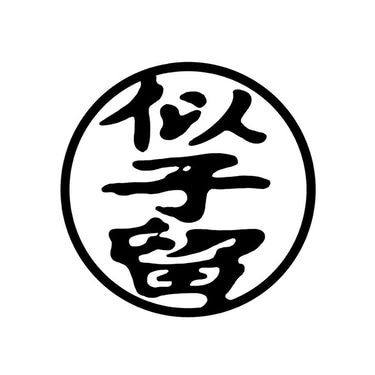Me&Korea Exhibition at Omma Poom 2025
nikoru
5/22/2025
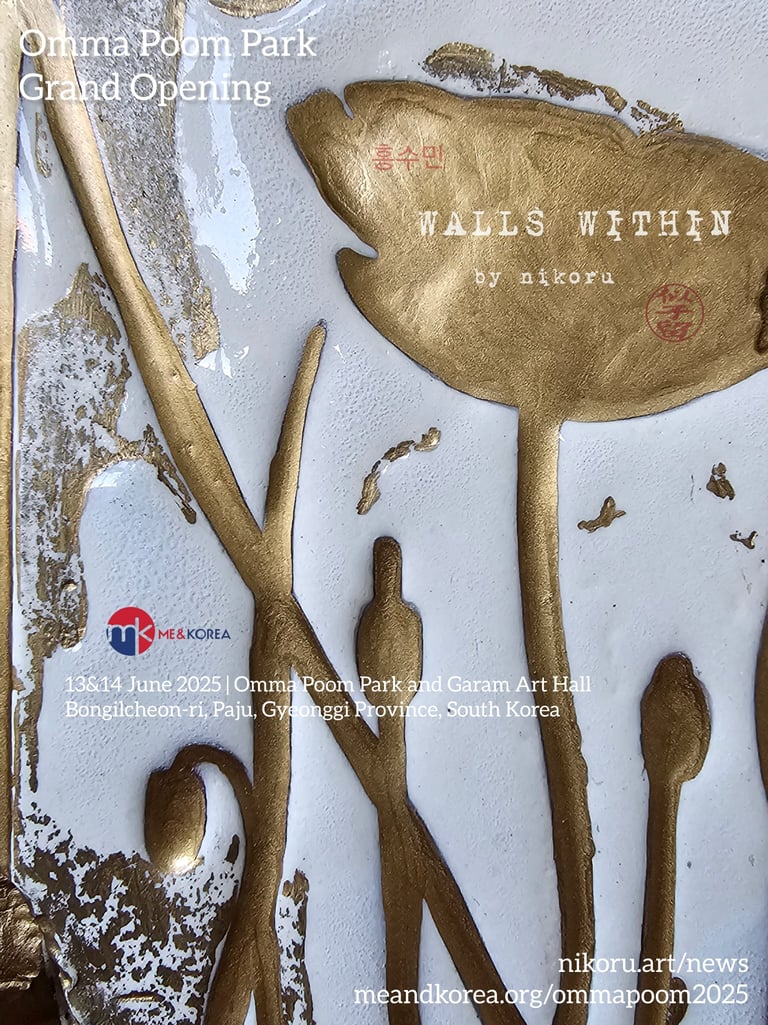

Upcoming Exhibition
Omma Poom Park Grand Opening
13 & 14 June 2025
Omma Poom Park and Peace Museum Bongilcheon-ri, Paju, Gyeonggi Province, South Korea
In September of 2018, the Omma Poom Park in Paju City was formally dedicated at a ceremony attended by local government officials, Korean adoptees from all over the world, birth families, and supporters of the adoptee community. Since the dedication, the work on the park has continued, with its formal opening set to take place in the summer of 2025.
The date has been set for the grand opening... there will be a two-day celebration organized by Me&Korea, a non-profit organization that provides Korean adoptees opportunities to learn about our roots, on the thirteenth and fourteenth of June. I will be attending this celebration by first traveling to the city I was born in, Seoul, and then to Paju with a fellow KAD, a dear friend who is currently traveling the world solo.
The city of Paju, Korea is located just south of Panmunjeom at the 38th parallel and Demilitarized Zone. Beginning in 2017, Paju began developing a memorial park named Omma Poom, dedicated to the approximately 200,000 children who were sent away to be adopted and raised around the world.
The park’s name, Omma Poom, carries deep significance: "Omma" means "mother" in Korean, and "Poom" evokes the comfort of a mother’s embrace. The park is designed to serve as both a tribute and a space for healing.
For two days, my series Walls Within will be on display in the peace museum of the park during this special event alongside other creations by some of my fellow KADs.
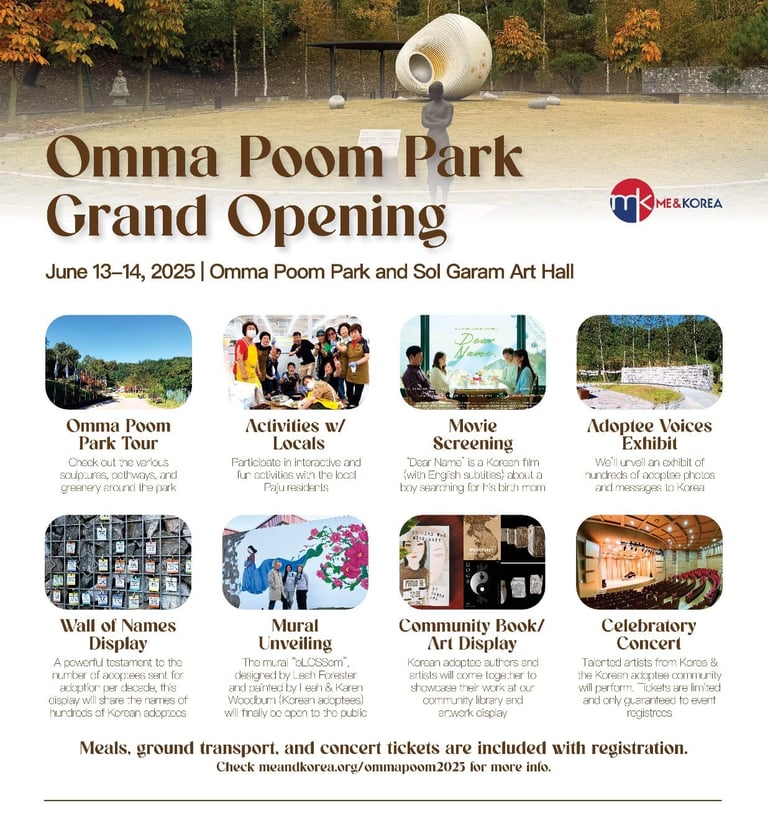

This event is open to adoptees, adoptive and birth families, and the general public.
Me & Korea was established to create a bridge between the Korean community and Korean adoptees, in the hopes of helping adoptees answer some of these questions. We foster cultural unity, and provide opportunities and assistance to learn about Korean culture and history, along with each adoptees' unique family heritage and background. We also aim to help the Korean community understand the uniqueness of the adoptee experience, and embrace each adoptee as Korean. Through our various programs, we hope Korean adoptees will not only think of Korea as the country in which they were born, but a place they can return to and call “home.”
At Me & Korea, it's my goal to help adoptees discover and feel pride in their identities as Koreans.
— Minyoung Kim, Founder & Executive Director
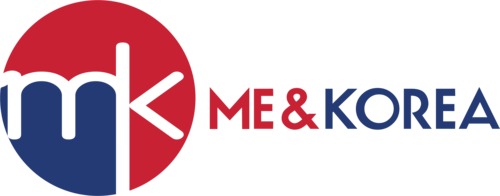

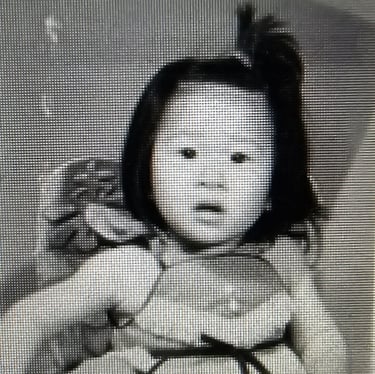

The Truth Will Set You Free
The difficult truth that many do not want to accept about adoption, particularly Korea's international adoption program is that it is a for-profit industry that has nothing to do with saving babies and small children.
Earlier this year, the Korean government admitted publicly that what was done to us was human trafficking. A lot of people made a lot of money off of us, including the Korean government, which sanctioned four major adoption agencies helping to provide the pathway that was taken to lying to the world in saying we are orphans to qualify for international adoption under their own laws. Orphaned children, by definition, are children whose parents have died. The orphanication process, a paperwork process, stripped us of our birth clan, let us be legally sent away by our own families, denied us our culture and language, cast us out of Korean society and had our citizenship replaced by a foreign one and placed us with people who expected us to call them "mother" and "father". And in some cases, some of us KADs were snatched right off the streets and brought to orphanages by opportunistic profiteers.
Korea's international adoption program did not begin as a cladestine way to save human lives but as a way to get rid of unwanted children born from unions between Korean women and foreign soldiers. To put it more succinctly, it was ethnic cleansing. Then, it became a way for unwanted children to be gotten rid of when Korean couples divorced because the country's patriarchal patrilineal culture makes those children inconvenient for the new partner when the divorced parents wish to remarry.
It has been said that you cannot put a pricetag on a human life, but it has been done many many many times before throughout human history.
How much is a human life worth?
In Korea, we are thirty thousand to sixty thousand USD each.
For some of you reading this, you will find this difficult to digest. It was even more difficult to find this out and accept it, and know that there were so many others who were as powerless as I and shared this same fate. The marketing for this for-profit business is strong and tugs at all the heartstrings, and so, when not-adopted people argue with us and deny our truth, you can now understand why we are so indignant and upset about being told that we were "saved" and "given a better life" or that we should be grateful. Some of us landed in situations with people who abused us physically, mentally and emotionally instead of caring for us, and we still carry our wounds, are scarred, are suffering and in pain. And that pain will never go away. We have simply learned, and are still learning, how to accept and grow around it.
The truth is ugly, but there is a beauty in knowing the truth of our circumstances and why this has happened to us. So, I ask you to please respect that and think about my words when you encounter an adoptee, Korean or not, and they have opinions that do not reflect your own positive ones about their adoption and how they think and feel about it.
The Omma Poom Park was created as a memoral and a place for reflection and healing. For me, it will be a place of connection and commiseration with my fellow KADs. My series Walls Within also represents the barriers and obstacles that have been created inside of each and everyone of us, and although the message is a universal one, I did have those like me in mind when creating it, and so, I leave you and end this with a poem I composed that you may have read before...
홍수민 (Hong SooMin), 1979
Walls Within
All thoughts are constructed. Some are ancient crumbling fortresses that were formed long ago. They existed long before they were built inside of each and everyone of us - traditions, culture, societal expectations and norms, religion. Some are newer, learned from first-hand experiences. Some we can tear down and take apart easily. Others endure and persist. All are supported by the strength of one's convictions and emotional attachments to them.
Examine. Deconstruct. Examine. Rebuild.
© 2025 似子留 • NIKORU • Nichole Hastings. All Rights Reserved. | Terms & Conditions
